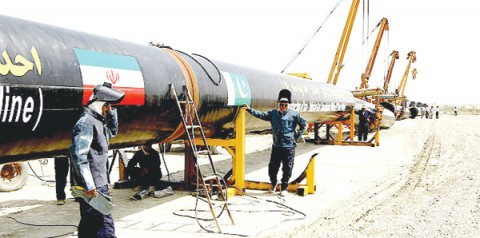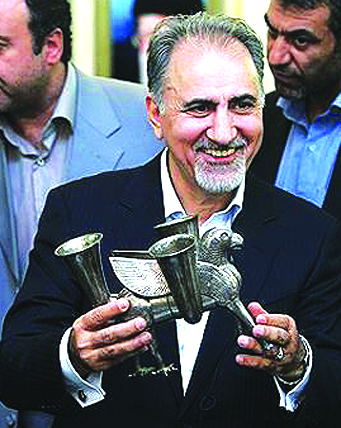November 01-2013

The Iran-Pakistan Gas Pipeline will be an economic disaster for Pakistan as the Iranian gas is grossly overpriced, a Pakistani think-tank announced last Wednesday.
The report says that Iran induced Pakistan to sign up for a pricing formula that links the gas price to that of oil, although natural gas prices have plummeted everywhere around the world—accept in the Iran-Pakistan deal.
Pakistan will be paying about quadruple what it should pay if it fails to re-negotiate the pricing formula, the study said.
The study was written by the Sustainable Development Policy Institute (SDPI) in Islamabad.
Presenting the report, SDPI Engineer Arshad H. Abbasi said gas and oil were different commodities and Pakistan needed to re-negotiate the gas price with Iran.
“We have an agreement with Iran that we will buy gas for $15/ MMBTU. However, Turkmenistan is supplying gas to Japan at a rate of $4/ MMBTU,” he said.
He said the government should give preference to the construction of dams, as hydroelectricity is the cheapest source of energy for Pakistan.
Abbasi said when the agreement was signed with Iran in 2004, Pakistan agreed to link the gas rate with the price of oil. However, oil prices have soared since 2004 while natural gas prices have plummeted.
“Italy and Germany took their cases to the International Court of Arbitration for delinking oil and gas prices regarding their gas deal. Pakistan can also negotiate the gas price with Iran under Clause 6.3 of the agreement,” he said.
He said Pakistan had an electricity generating capacity of 24,000 megawatts, but is unable to generate that much because of the scarcity of natural gas. Pakistan failed to discover new gas reserves and was thus forced to import the fuel to meet its growing energy requirements, he said.
Similarly, the former chairman of the Water and Power Development Authority, Shamsul Mulk, said hydropower could be generated at a cost of 1.75 rupees per unit, as opposed to 15 rupees with Iranian gas.
“We should construct more dams because they provide water for agriculture and save the country from floods,” he said, in addition to providing cheap electricity.
In the week since the report was issued, the government has remained silent. A few weeks ago, it confessed that it could not find the capital needed to build the pipeline—largely because it will link with Iran and no bank wants that kind of involvement. Now Pakistan is asking Iran to provide $2 billion in addition to the $500 million already promised for pipeline construction. But the government has simply remained silent about the pricing formula.





















